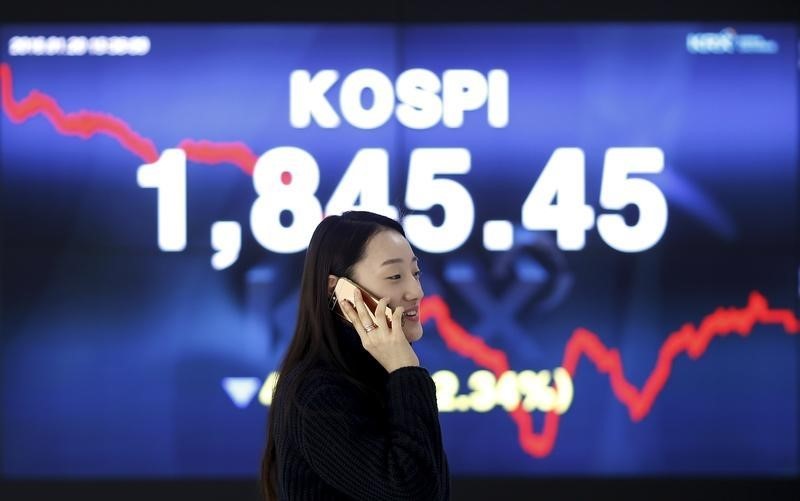This post was originally published on this site
https://i-invdn-com.investing.com/news/LYNXNPEC3I0EK_M.jpg
Investing.com– Most Asian stock markets rose on Thursday amid growing expectations that the Federal Reserve will temper its pace of interest rate hikes, although Chinese equities lagged as the country logged record-high COVID-19 infections.
Japan’s Nikkei 225 index jumped 1% in catch-up trade, while India’s Nifty 50 index added 0.5%. Japanese stocks largely looked past data showing a prolonged contraction in the country’s business activity.
Malaysian stocks surged 2%, and were the best performers in the region after Anwar Ibrahim was confirmed as the country’s new Prime Minister, ending five days of political deadlock. A tightly-contested general election saw Malaysia experience its first-ever hung parliament this week.
On the other hand, Chinese stocks retreated despite new stimulus measures from the government, as the country logged a record-high jump in daily COVID infections. The new outbreak saw the reintroduction of new curbs in several major cities, including Beijing and Shanghai.
The blue-chip Shanghai Shenzhen CSI 300 index fell 0.4%, while the Shanghai Composite index fell 0.2%, largely lagging a rally in their regional peers.
Australia’s ASX 200 rose only 0.1% amid concerns over China, given the country has heavy trade exposure to the mainland.
Broader Asian stock markets surged after the minutes of the Federal Reserve’s November meeting showed that several officials supported a slower pace of interest rate hikes in the coming months, in order to gauge the full impact of sharp interest rate hikes on the economy.
But officials said that rate hikes will only cease when inflation shows clear signs of slowing. While CPI inflation eased more than expected in October, it remained well above the Fed’s 2% annual target. Other economic indicators also showed that the U.S. economy was likely cooling after a bounce in the third quarter.
Still, the prospect of smaller U.S. rate hikes was welcomed by Asian markets, given that the sector was sold off heavily amid rising interest rates this year.
South Korea’s KOSPI index jumped 0.9% after the Bank of Korea raised rates by a relatively smaller margin. But the central bank indicated that it intends to keep raising interest rates in order to curb high inflation.
Other technology-heavy bourses also benefited from the prospect of smaller rate hikes. Hong Kong’s Hang Seng index added 0.6%, while the Taiwan Weighted index jumped 1.2%.

